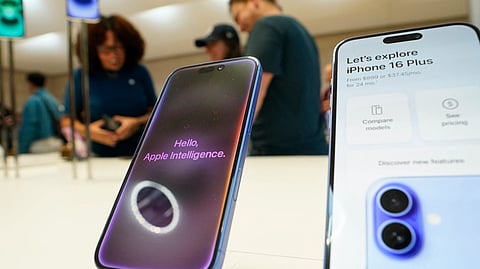
- NEWS
- the EDIT
- COMMENTARY
- BUSINESS
- LIFE
- SHOW
- ACTION
- GLOBAL GOALS
- SNAPS
- DYARYO TIRADA
- MORE

Apple Inc. is gearing up for its most important event of the year on 9 September, when it is widely expected to unveil the iPhone 17 lineup along with new Apple Watches and other devices. The announcement, set at the company’s Cupertino, California headquarters, comes with the tagline “Awe dropping.”
The event carries major business implications for the world’s most valuable tech company. The iPhone remains Apple’s largest revenue driver, and investors will closely watch whether the new models can sustain sales momentum at a time of tighter consumer spending and growing competition in artificial intelligence (AI).
Apple has faced scrutiny after delaying a key upgrade to its Siri digital assistant that would have brought it closer in capability to OpenAI’s ChatGPT and Google’s Gemini. Still, the company reported strong iPhone sales in its July earnings report, lifting investor confidence. Analysts expect Apple to continue positioning its latest devices as being “built for Apple Intelligence,” following the AI-driven theme it introduced with last year’s iPhone 16.
Bloomberg reports that Apple may highlight a super slim iPhone this year, a design shift that could reinvigorate demand in a smartphone market where most upgrades are made out of necessity. However, the slimmer build could come at the expense of battery life and camera performance.
Aside from the new variant, Apple is expected to launch a standard iPhone 17 and upgraded Pro models with enhanced cameras, titanium design, and more powerful processors. But its strategy of diversifying iPhone sizes has had mixed success, with the iPhone Mini discontinued and the iPhone 16 Plus accounting for just 5–10 percent of shipments as of July 2024, according to TF International Securities analyst Ming-Chi Kuo, who also predicts the Plus model will be phased out next year.
Meanwhile, Apple’s pledge to invest $600 billion in US operations, including a domestic chip supply chain, could shield it from the planned 100 percent tariffs on semiconductors, after President Donald Trump indicated that firms committing to US production would be spared.
